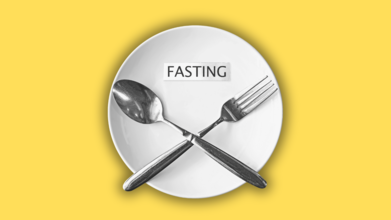- Health Conditions A-Z
- Health & Wellness
- Nutrition
- Fitness
- Health News
- Ayurveda
- Videos
- Medicine A-Z
- Parenting
- Web Stories
FDA Issues Severe Tomato Recall Warning in Southern US

Credits: Canva
The United States is already struggling with immense pressure on its health sector, with the rise in COVID-19 cases and ongoing measles outbreak. In another news, now Salmonella-tainted tomatoes in three southern states have caused severe illness and even death, warned the US Food and Drug Administration (FDA).
The FDA has also updated the ongoing recall of tomatoes which have been distributed in Georgia, North Carolina and South Carolina to Class I, which is the highest warning level, also reported in the New York Times.
What Does Class I Recall Mean?
Class I recall means that there is a reasonable change that using the product could lead to "serious adverse health consequences or death".
As per FDA, recalls are classified into three numerical designation, I, II, and III.
Class II recall is for a situation in which the use of or exposure to, a violative product may cause temporary or medically reversible adverse health consequences or where the probability of serious adverse health consequence is remote.
Class III is for a situation in which use of, or exposure to, a violative product is not likely to cause adverse health consequences.
Where Were These Tomatoes Distributed?
These tomatoes were distributed under the H&C Farms which were labelled between April 23 and 29. They were also sold in packages which had ranged from small three-pack to 25-pound boxes.
This was also reported in early May, however, at that time, there were no illness which had been recorded. Though now, the FDA says the risk is much more severe.
Shoppers are unlikely to find fresh tomatoes from the recalled batch still on shelves, according to the FDA.
However, The New York Times reports that salmonella can survive for weeks in dry conditions and even longer in wet or frozen environments—meaning contaminated tomatoes might still pose a risk if stored.
The exact source of the contamination remains unclear. Williams Farms Repack, the South Carolina distributor, and H&C Farms have both declined to comment.
Salmonella affects over a million people in the U.S. annually and causes more than 400 deaths, says the USDA. Symptoms typically include fever, diarrhea, and intense stomach pain, lasting several days.
Children under 5, seniors over 65, and people with weakened immune systems face the highest risk—but the FDA warns that even healthy individuals should avoid the recalled tomatoes.
What Is Salmonella?
As per the FDA, Salmonella are a group of bacteria that can cause gastrointestinal illness and fever called salmonellosis. It can be spread by food handlers who do not wash their hands and/or the surfaces and tools they use between food preparation steps. It can also happen when people consume uncooked and raw food. Salmonella can also spread from animal to people.
FDA notes that people who have direct contact with certain animals, including poultry and reptiles can spread the bacteria from the animal to food if hand washing hygiene is not practiced.
Pets too could spread the bacteria within the home environment if they eat food contaminated with Salmonella.
What Are The Symptoms Like?
FDA notes that most people infected with Salmonella will begin to develop symptoms 12 to 72 hours of the infection, which lasts for about four to seven days. Most people recover without treatment.
Most people experience these following symptoms:
- Diarrhea
- Fever
- Abdominal Cramps
In severe cases of salmonella, you may experience:
- High fever
- Aches
- Headaches
- Lethargy
- A rash
- Blood in urine and stool
As per the CDC, each year, around 450 people die in the United States due to acute salmonellosis.
Diet Or Exercise? Study Finds What Plays A Bigger Role In Weight Loss

(Credit - Canva)
Many people who start working out often think that as long as they are exercising, they can eat whatever they want. However, on the flip side, many people believe that controlling one’s diet is more important. So, which one is true? What does more weight do in your fitness journey?
A recent study published in the Proceedings of the National Academy of Sciences supports this idea, finding that diet, not a lack of physical activity, is the main reason for the obesity epidemic. This doesn't mean exercise isn't important—it absolutely is—but if your main goal is weight loss, the study suggests that what you eat matters more than how much you work out.
Obesity on the other hand is another factor that prompts more research like this. In recent years we have seen obesity rates increase, current stats showing that one out of eight people are obese (World Health Organization). The statistics show that adult obesity rates have quadrupled since 1990. Is diet the cause of this?
Diet vs. Exercise: Which Matters More for Weight?
To understand whether consuming too many calories or not burning enough calories is the primary cause of obesity, a team of researchers compared data from over 4,000 people across six continents. The groups included highly active people like farmers and hunter-gatherers, as well as people from industrialized countries who were much less active.
The study found that people in industrialized nations had higher body weight and body fat. However, after adjusting for body size, the researchers found that they were only burning a little bit fewer calories each day than the more active groups. This was a surprising discovery, considering their lifestyles were far less active. This suggests that the rise in obesity isn't due to people failing to burn enough calories, but rather because they are simply eating too many calories.
Does A Diet-First Approach Work For Weight Loss?
While this study is observational and can't prove a direct cause-and-effect relationship, other experts agree with its findings. According to one expert, decades of research have shown that physical activity makes only a "minor contribution" to weight management.
A few studies have suggested the opposite, and some researchers argue that a combination of diet and exercise is best for long-term weight loss. However, most of the evidence supports focusing on diet first. One likely reason is that our bodies naturally adapt to exercise. When you become very active, your body becomes more efficient, so you don't keep burning more and more calories over time.
Does Exercise Not Matter For Weight Loss?
This research does not mean you should stop exercising. In fact, experts call exercise "the most powerful life-extending intervention we have," with clear benefits for both physical and mental health.
However, when it comes to weight, the message is clear: focus on the number of calories you're eating, not just the number you're burning. Experts recommend a diet rich in fresh fruits, vegetables, whole grains, and lean proteins while cutting back on processed foods.
The study also points out that the responsibility for these changes isn't just on individuals. It's often easier and cheaper to buy junk food than healthy food. Governments and public health officials have a role to play in making healthy, fresh foods more accessible and affordable for everyone.
Watch: What Really Happens To Your Body After 72 Hours Without Food?

Credits: Canva
There's a new "miracle" diet every few months that swears to yield rapid results- cut carbs, miss meals, juice for days only. You've probably either given one a try yourself or seen someone close to you dive in headfirst. Do these extreme diets really benefit your body, or do they simply put your body into survival mode? From YouTube "self-experiments" to TikTok challenges, prolonged fasting has become one of the most contentious health trends of the decade. Its proponents argue that it improves cognitive function, activates robust repair processes, and even reverses aging. Critics counter that it approaches irresponsible, forcing the body into starvation mode with surprisingly little scientific evidence to support many of the more lofty assertions.
So, what actually goes down when you go without food for three days? To find out, we must dissect how the body slowly changes gears hour by hour, what research really reveals, and why fasting for 72 hours is much more complicated than a speedy "detox hack."
The First 6–10 Hours
In the first few hours after a meal, your body relies on glucose from digested food to power everything from your brain to your muscles. By the 6-to-10-hour mark, those reserves are nearly gone.
This is when the pancreas steps in, secreting glucagon—a hormone that is meant to maintain blood sugar levels by drawing on stored glycogen in your liver. What happens? You might get lightheaded, cranky, or suddenly sensitive to hunger. For most folks, this stage is like missing a meal or two, but it's merely the start of the metabolic cascade.
Repair Mode and Autophagy After 16–24 Hours
Past 16 hours, the body begins to turn on itself for energy. Autophagy starts—cells actually break down and reuse damaged parts for fuel.
Certain animal experiments propose this might sweep away toxic proteins and cut disease risk. A few aggressive assertions even attribute autophagy to suppressing cancer cells, but authorities warn that is a long way from being established in humans. The one thing that is certain, though, is that growth hormone release surges at this point, slowing muscle loss and keeping you going even as calories run out.
At 24 hours, glucose stores are depleted mainly. Fat is now your energy supply, with ketones beginning to accumulate in the blood. For the fasting aficionados, this is the "deep repair" stage, although it comes with headaches, exhaustion, and hunger pangs for most beginners.
Ketosis After 48 Hours
By the 48-hour point, your body is solidly in ketosis, living off fat-based ketones as its fuel money. For some, this change introduces unexpected acuity. Small studies indicate that ketones can temporarily enhance concentration and cognitive functions—an evolutionary response to enable humans to search for food when there was none to be found.
But the disadvantages are difficult to overlook. Energy lulls, dehydration, confusion, and crankiness are typical. Muscle protein is progressively metabolized for necessary amino acids. Hunger peaks at this point, pushing mental determination and physical endurance to the limit.
Survival Mode After 72 Hours
Three consecutive days without food marks the turning point. At this stage, fasting isn't any longer a matter of "burning fat" or "detoxing"—it's survival.
A 2019 Queen Mary University of London study indicated that long periods of fasting have the potential to induce a multi-organ reprogramming, resetting the immune system and metabolism. This involves increased autophagy, ongoing dependence on fat reserves, and immune cell production changes.
Not all have an equal "reset." For some, the cost is dire: fatigue, lightheadedness, electrolyte disturbances, and risk of heart strain. Unscheduled by doctors, danger soon surpasses possible gain.
Is 72-Hour Fasting Safe?
As Johns Hopkins Medicine says, prolonged fasting can have an unwanted effect if the body enters starvation mode, where it holds on to fat instead of burning it. Rather than aiding weight control, this can decelerate metabolism and make it more difficult to sustain weight loss over time.
Side effects are also true. According to Healthline, symptoms include nausea and irritability all the way to severe fatigue and brain fog while in ketosis. For patients with diabetes, heart disease, or deficiencies, the dangers can be life-threatening.
Should You Still Try It?
If fasting for 72 hours is so strenuous, then why do people still try it? Partly, it's the appeal of control—the notion of "restarting" the body and breaking with contemporary reliance on continuous snacking. There's also new science suggesting intermittent fasting, when done safely, might promote longevity and metabolic health but specialists caution there's a huge difference between intermittent fasting (such as 5:2 or 16:8 eating styles) and long-term starvation. The former can be safe and sustainable; the latter belongs in clinical trials or doctor's offices.
Three days of fasting demonstrates just how adaptive the human body is. From tapping fat reserves to recycling junk cells, fasting biology is both interesting and intricate. But being interesting does not equate to being endorsed.
For most people, safer fasting regimens—such as shorter intermittent fasts—are more researched and easier to stick to. Anyone thinking about extreme fasting should first see a healthcare professional. For one individual, it might seem like a "reset," but it might cause severe complications for another.
What the 72-hour fast actually shows us is not so much about losing weight as it is about the precarious tightrope our bodies walk to sustain us. It's a message that health isn't about extremes, it's about sustainability, support, and regard for the limitations of human physiology.
Disclaimer: The content of this article is for informational purposes only. Always consult a qualified healthcare professional before undertaking extensive dietary changes.
Why a Top Gut Doctor Says Bacon Should Be Banned from Breakfast Plates

Credits: Canva
If you think the worst thing on your breakfast plate is sugar in your cereal or the butter on your toast, think harder. According to Dr Alan Desmond, gut health specialist and author, the worst thing is processed food and he wishes the world could wave goodbye to it forever. Referring to bacon, the crispy, salty, beloved slice that makes brunch plates look complete, he says that it may also be shortening lives by the hundreds of thousands.
Why Bacon Is the Bad for Health
Dr Desmond does not mince words when it comes to processed meats. Bacon, sausages, salami, pepperoni, ham, hot dogs and other smoky foods may taste divine, but their health record is worse than you might imagine. These meats are not just linked to bowel cancer, a risk factor many already know, but also to heart disease, type 2 diabetes and premature death. In fact, global health experts estimate that processed meats contribute to over 644,000 preventable deaths each year. To put it simply, that tasty strip in your pan may be costing society more than just a few clogged arteries.
Why Doctors Never Say “Pass the Bacon”
Unlike most people, Dr Desmond admits he has never felt tempted to have bacon at breakfast. The science, in his view, is clear that regular consumption of processed meats is dangerous, and avoiding them entirely is one of the simplest dietary decisions you can make to protect your health. In an age where everyone is chasing superfoods and longevity hacks, giving up bacon might sound boring, but it could be one of the most effective moves for your long-term wellbeing.
Also Read: 101-Year-Old Harvard Doctor's Secrets To Live A Longer, Healthier Life
Ultra-Processed Foods and Cancer Risk
Ice cream, breakfast cereal, and that quick-fix instant noodle packet might save a lot of your time and satisfy your taste buds. But a growing body of research suggests they may be doing more harm than just expanding your waistline. A new study has drawn a strong link between eating ultra-processed foods (UPFs) and a significantly higher risk of developing lung cancer.
Here is what you need to know about the findings and whether your daily diet might be putting your lungs at risk.
The study, led by Chinese researchers and published in the medical journal Thorax, tracked the health and food habits of over 100,000 American adults, with an average age of 63, for around 12 years. Using detailed dietary questionnaires, researchers zoomed in on the intake of UPFs, which include all your guilty pleasures: cakes, cookies, soft drinks, frozen pizzas, hot dogs, margarine, sugary cereals, and yes, even your beloved salty snacks.
Participants consumed anywhere between half a serving to six servings of these foods daily, with the average landing at nearly three servings a day. Lunch meats and soft drinks came out on top as the most commonly consumed items.
Also Read: This Surprisingly Simple Sleep Reset Works Better Than Any Hack
By the end of the study, 1,706 participants had developed lung cancer. When researchers compared diets, a disturbing pattern emerged: those who ate the most UPFs had a 41 per cent greater chance of developing lung cancer compared to those who ate the least.
It is Not Just About Smoking
Naturally, the study controlled for smoking status, an obvious and major risk factor for lung cancer. But the researchers admit they could not account for smoking intensity, a variable that could skew results. Still, the pattern remained strong even when separating out different lung cancer types, including both small cell and non-small cell variants.
Reports say that a quarter of lung cancer cases occur in non-smokers, and this highlights the need to explore other possible triggers, including diet.
However, the study is not airtight. Dietary habits change a lot over 12 years, and participants only logged their UPF intake at the start.
What is the Study Actually Saying?
The study’s authors are not claiming that UPFs cause lung cancer. But the association is strong enough to spark concern. They say global efforts to cut back on ultra-processed foods could be an effective way to reduce lung cancer cases, especially among non-smokers.
They are not wrong. While the direct line between a cupcake and a cancer cell has not been proven, UPFs are already known to contribute to obesity, heart disease, type 2 diabetes, and even depression. Adding lung cancer to the list, even with some scientific caveats, raises the stakes for rethinking what is on your plate.
Vaping May Be Rising, But Smoking Is Falling
On a related note, separate research from the University of Michigan offers a silver lining: teenage smoking is on the decline. Tracking data on 16- and 17-year-olds in Britain from 1974, 1986, and 2018, the study showed a drop from 33 per cent to 12 per cent in teen smoking. But in 2018, 11 per cent of teens reported using e-cigarettes instead.
That is still a win in the long-term fight against lung cancer, but it also makes lifestyle-related risks like diet more significant. If fewer people are smoking, then other contributors to lung cancer, like poor nutrition, could become even more important to understand.
Should You Panic or Not?
The science is not settled, and researchers are being cautious. Still, the message is clear: even if you have never lit a cigarette in your life, what you eat might be silently setting off alarms in your body.
While more studies are needed to confirm causation, this new research adds to a growing chorus warning us about the dangers of overly processed meals. You do not need to quit cake completely, but maybe it is time to take care of your lungs more by making better food choices.
© 2024 Bennett, Coleman & Company Limited

